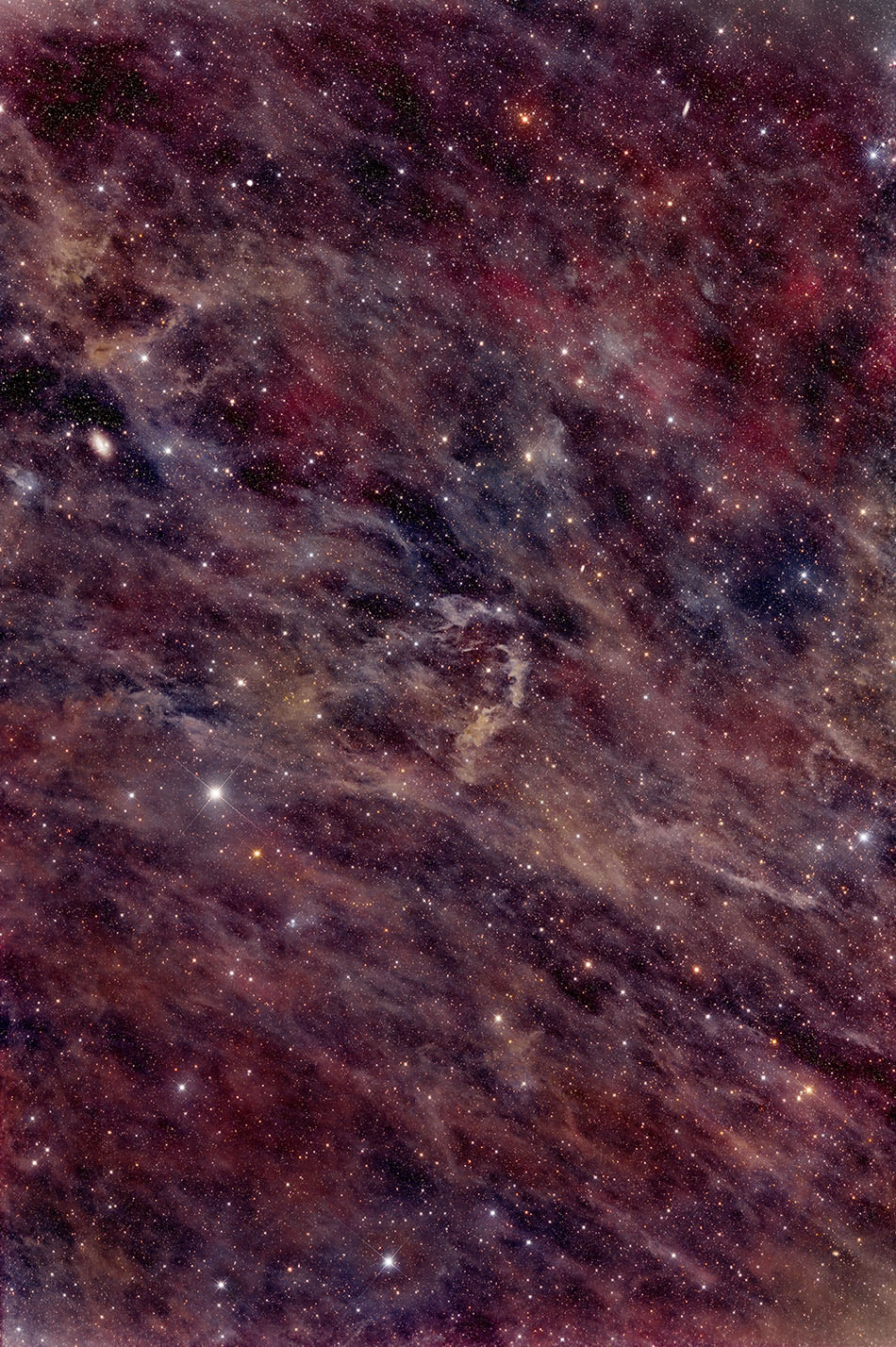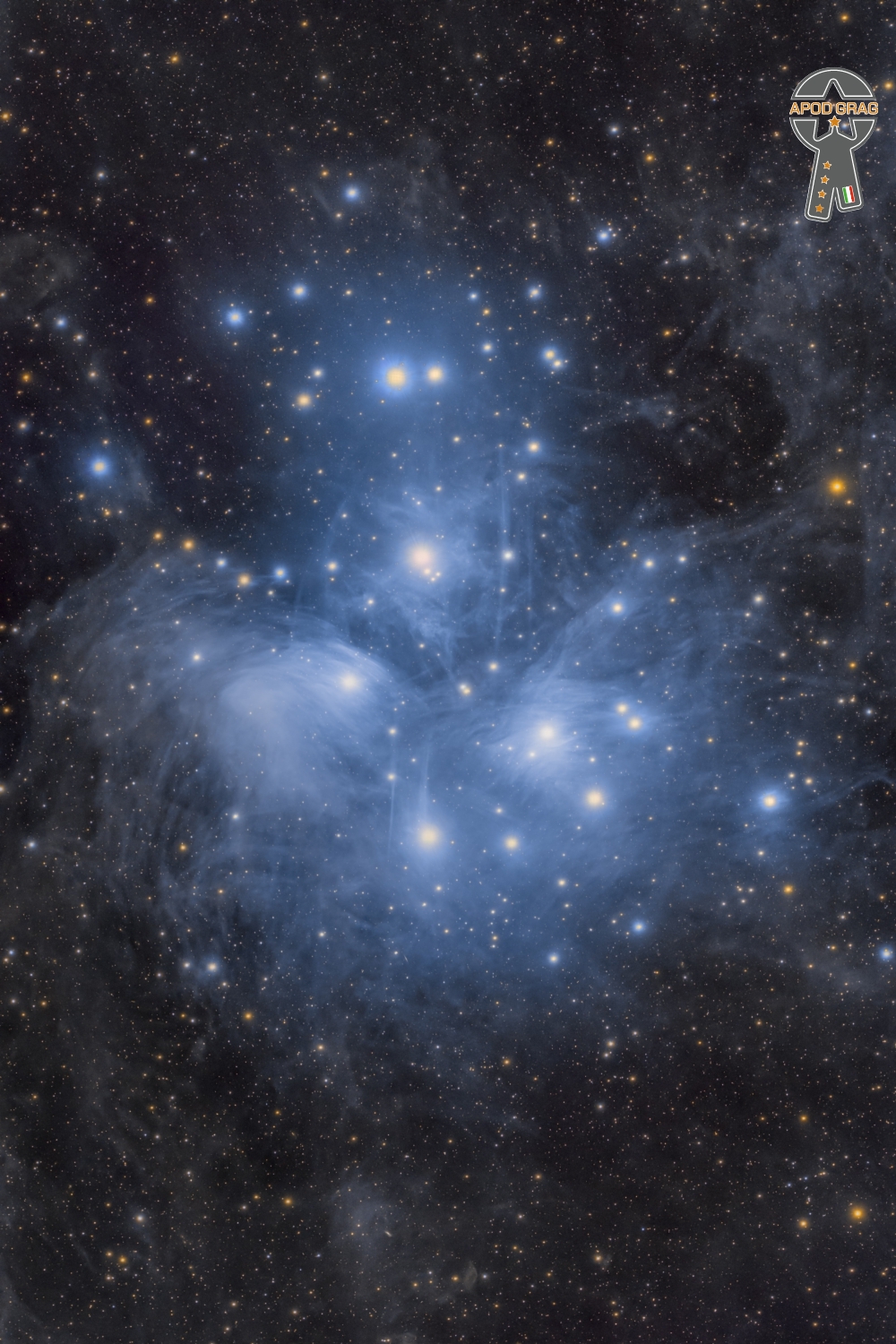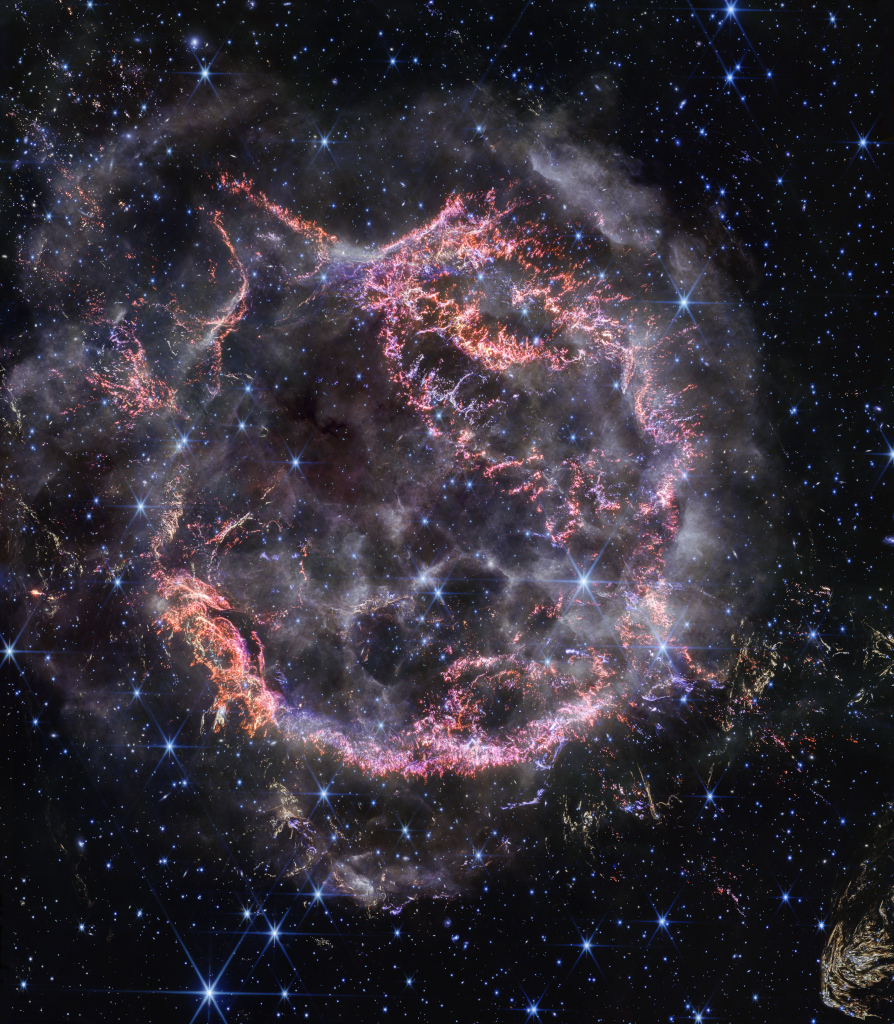Blog
NGC 1569 is a dwarf irregular galaxy in Camelopardalis. The galaxy is relatively nearby and consequently, the Hubble Space Telescope can easily resolve the stars within the galaxy. The distance to the galaxy was previously believed to be only 2.4 Mpc (7.8 Mly). However, in 2008 scientists studying images from Hubble calculated the galaxy’s distance at nearly 11 million light-years away, about 4 million light-years farther than previously thought, meaning it is a member of the IC 342 group of galaxies.

Robben Lee Ford (born December 16, 1951) is an American blues, jazz, and rock guitarist. He was a member of the L.A. Express and Yellowjackets and has collaborated with Miles Davis, Joni Mitchell, George Harrison, Larry Carlton, Rick Springfield, Little Feat, and Kiss. He was named one of the “100 Greatest Guitarists of the 20th Century” by Musician magazine.
Robben Ford was born in Woodlake, California, and raised in Ukiah, California. He began playing the saxophone at age 10 and the guitar at age 14. Robben and two of his brothers (Patrick and Mark) created the Charles Ford Blues Band in honor of and named after their father. A fourth brother died in the Vietnam conflict.
more...John Laird Abercrombie (December 16, 1944 – August 22, 2017) was an American jazz guitarist. His work explored jazz fusion, free jazz, and avant-garde jazz. Abercrombie studied at Berklee College of Music in Boston, Massachusetts. He was known for his understated style and his work with organ trios. John Abercrombie was born on December 16, 1944, in Port Chester, New York. Growing up in the 1950s in Greenwich, Connecticut he was attracted to the rock and roll of Chuck Berry, Elvis Presley, Fats Domino, and Bill Haley and the Comets. He also liked the sound of jazz guitarist Mickey Baker of the vocal duo Mickey and Silvia. He had two friends who were musicians with a large jazz collection. They played him albums by Dave Brubeck and Miles Davis. The first jazz guitar album he heard was by Barney Kessel.
more...
John Robert “Johnny Hammond” Smith (December 16, 1933 – June 4, 1997) was an American soul jazz and hard bop organist. Born in Louisville, Kentucky, he was a renowned player of the Hammond B-3organ so earning “Hammond” as a nickname, which also avoided his being confused with jazz guitarist Johnny Smith though this could lead to him being confused with Jimmy Smith (musician), another Hammond great.
Smith played with Paul Williams and Chris Columbo before forming his own group. His bands featured singers Etta Jones, Byrdie Green, saxophonists Houston Person, Earl Edwards, guitarists Eddie McFadden, Floyd Smith, James Clark, vibist Freddie McCoy. His career took off as he was serving as accompanist to singer Nancy Wilson. One of his last accomplishments also included Nancy Wilson. He wrote the song “Quiet Fire” for her Nancy Now! release in 1988.
more...Ludwig van Beethoven (baptised 17 December 1770 – 26 March 1827) was a German composer and pianist. Beethoven remains one of the most admired composers in the history of Western music; his works rank among the most performed of the classical music repertoire and span the transition from the Classical period to the Romantic era in classical music. His career has conventionally been divided into early, middle, and late periods. His early period, during which he forged his craft, is typically considered to have lasted until 1802. From 1802 to around 1812, his middle period showed an individual development from the styles of Joseph Haydn and Wolfgang Amadeus Mozart, and is sometimes characterized as heroic. During this time, he began to grow increasingly deaf. In his late period, from 1812 to 1827, he extended his innovations in musical form and expression.
Beethoven was born in Bonn. His musical talent was obvious at an early age. He was initially harshly and intensively taught by his father, Johann van Beethoven. Beethoven was later taught by the composer and conductor Christian Gottlob Neefe, under whose tutelage he published his first work, a set of keyboard variations, in 1783. He found relief from a dysfunctional home life with the family of Helene von Breuning, whose children he loved, befriended, and taught piano. At age 21, he moved to Vienna, which subsequently became his base, and studied composition with Haydn. Beethoven then gained a reputation as a virtuoso pianist, and was soon patronised by Karl Alois, Prince Lichnowsky for compositions, which resulted in his three Opus 1 piano trios (the earliest works to which he accorded an opus number) in 1795.
His first major orchestral work, the First Symphony, premiered in 1800, and his first set of string quartetswas published in 1801. Despite his hearing deteriorating during this period, he continued to conduct, premiering his Third and Fifth Symphonies in 1804 and 1808, respectively. His Violin Concerto appeared in 1806. His last piano concerto (No. 5, Op. 73, known as the Emperor), dedicated to his frequent patron Archduke Rudolf of Austria, premiered in 1811, without Beethoven as soloist. He was almost completely deaf by 1814, and he then gave up performing and appearing in public. He described his problems with health and his unfulfilled personal life in two letters, his Heiligenstadt Testament (1802) to his brothers and his unsent love letter to an unknown “Immortal Beloved” (1812).
After 1810, increasingly less socially involved, Beethoven composed many of his most admired works, including later symphonies, mature chamber music and the late piano sonatas. His only opera, Fidelio, first performed in 1805, was revised to its final version in 1814. He composed Missa solemnisbetween 1819 and 1823 and his final Symphony, No. 9, one of the first examples of a choral symphony, between 1822 and 1824. Written in his last years, his late string quartets, including the Grosse Fuge, of 1825–1826 are among his final achievements. After several months of illness, which left him bedridden, he died in 1827.
https://www.youtube.com/watch?v=EVKdd-gI_aQ
more...The Pleiades also known as the Seven Sisters, Messier 45, and other names by different cultures, is an asterism and an open star cluster containing middle-aged, hot B-type stars in the north-west of the constellation Taurus. At a distance of about 444 light years, it is among the nearest star clusters to Earth. It is the nearest Messier object to Earth, and is the most obvious cluster to the naked eye in the night sky. It is also observed to house the reflection nebula NGC 1432, an HII region.

Carmine Appice (/ˈkɑːrmaɪn æˈpiːs/ Italian: [ˈkarmine ˈappitʃe]; born December 15, 1946) is an American rock drummer. He is best known for his associations with Vanilla Fudge; Cactus; the power trio Beck, Bogert & Appice; Rod Stewart; King Kobra; and Blue Murder. He is also Vinny Appice‘s older brother. Appice was inducted into the Classic Drummer Hall of Fame in 2013 and the Modern Drummer Hall of Fame in 2014.
He is credited with influencing later rock drummers including Iron Maiden‘s Nicko McBrain, Aerosmith‘s Joey Kramer, Roger Taylor of Queen, Phil Collins of Genesis, Rush‘s Neil Peart, Mötley Crüe‘s Tommy Lee, Slayer‘s Dave Lombardo, Richard Christy, David Kinkade, Ray Mehlbaum, Led Zeppelin‘s John Bonham, Ian Paice of Deep Purple, Anvil‘s Robb Reiner and Eric Singer of Kiss.[citation needed]
His best-selling drum instruction book The Realistic Rock Drum Method. was first published in 1972 and has since been revised and republished as The Ultimate Realistic Rock Drum Method. It covers the basic subjects of rock rhythms and polyrhythms, linear rudiments and groupings, shuffle rhythms, hi-hat and double bass drum exercises.
more...Curtis DuBois Fuller (December 15, 1932 – May 8, 2021) was an American jazz trombonist. He was a member of Art Blakey‘s Jazz Messengers and contributed to many classic jazz recordings.
Fuller was born in Detroit on December 15, 1932. His father had emigrated from Jamaica and worked in a Ford automobile factory, but he died from tuberculosis before his son was born. His mother, who had moved north from Atlanta, died when he was 9. He spent several years in an orphanage run by Jesuits. He developed a passion for jazz after one of the nuns there brought him to see Illinois Jacquet and his band perform, with J. J. Johnson on trombone.
more...Barry Doyle Harris (December 15, 1929 – December 8, 2021) was an American jazz pianist, bandleader, composer, arranger, and educator. He was an exponent of the bebop style. Harris was born on December 15, 1929, in Detroit, Michigan, to Melvin Harris and Bessie as the fourth of their five children. Harris took piano lessons from his mother at the age of four. His mother, a church pianist, asked him if he was interested in playing church music or jazz. Having picked the latter, he was influenced by Thelonious Monk and Bud Powell. In his teens, he learned bebop largely by ear, imitating solos by Powell. He described Powell’s style as being the “epitome” of jazz. He performed for dances in clubs and ballrooms. He was based in Detroit through the 1950s and worked with Miles Davis, Sonny Stitt, and Thad Jones, and substituted for Junior Mance in the Gene Ammons band. In 1956, he toured briefly with Max Roach, after Richie Powell, the band’s pianist and younger brother of Bud Powell, died in a car crash.
more...Buleria dance accompaniemnt includes several distinct moments of interaction between a guitarist and dancers:
- Entrada: when the dancer comes on stage
- Llamada: from the verb “llamar,” to call. The dancer calls to the other people on stage that something is about to happen, for example a new verse or section of footwork
- Desplante: a “display,” a short section of footwork
- Letras: dance that traditionally accompanies passages of singing. Chord progressions suggesting the letra may be included even when a singer is not present.
- Escobilla: long passages of footwork (though not too long – in buleria in particular this is frowned upon)
- Cierre: a closing dance pattern, often one moving across the stage
Massive stars in our Milky Way Galaxy live spectacular lives. Collapsing from vast cosmic clouds, their nuclear furnaces ignite and create heavy elements in their cores. After only a few million years for the most massive stars, the enriched material is blasted back into interstellar space where star formation can begin anew. The expanding debris cloud known as Cassiopeia A is an example of this final phase of the stellar life cycle. Light from the supernova explosion that created this remnant would have been first seen in planet Earth’s sky about 350 years ago, although it took that light 11,000 years to reach us. This sharp NIRCam image from the James Webb Space Telescope shows the still hot filaments and knots in the supernova remnant. The whitish, smoke-like outer shell of the expanding blast wave is about 20 light-years across, while the bright speck near center is a neutron star, the incredibly dense, collapsed remains of the massive stellar core. Light echoes from the massive star’s cataclysmic explosion are also identified in Webb’s detailed image of supernova remnant Cassiopeia A.

more...
Leo Wright (December 14, 1933 in Wichita Falls, Texas – January 4, 1991 in Vienna) was an American jazz musician who played alto saxophone, flute and clarinet. He played with Booker Ervin, Charles Mingus, John Hardee, Kenny Burrell, Johnny Coles, Blue Mitchell and Dizzy Gillespie in the late 1950s, early 1960s and in the late 1970s. Relocating to Europe in 1963, Wright settled in Berlin and later Vienna. During this time he performed and recorded primarily in Europe, using European musicians or fellow American expatriates, such as Kenny Clarke and Art Farmer. He died of a heart attack in 1991 at the age of 57.
more...Phineas Newborn Jr. (December 14, 1931 – May 26, 1989) was an American jazz pianist, whose principal influences were Art Tatum, Oscar Peterson, and Bud Powell.
Newborn was born in Whiteville, Tennessee, and came from a musical family: his father, Phineas Newborn Sr., was a drummer in blues bands, and his younger brother, Calvin, a jazz guitarist. He studied piano as well as trumpet, and tenor and baritone saxophone.
Before moving on to work with Lionel Hampton, Charles Mingus, and others, Newborn first played in an R&B band led by his father on drums, with his brother Calvin on guitar, Tuff Green on bass, Ben Branchand future Hi Records star Willie Mitchell. The group was the house band at the now famous Plantation Inn Club in West Memphis, Arkansas, from 1947 to 1951, and recorded as B. B. King‘s band on his first recordings in 1949, as well as the Sun Records sessions in 1950. They left West Memphis in 1951 to tour with Jackie Brenston as the “Delta Cats” in support of the record “Rocket 88“, recorded by Sam Phillips and considered by many to be the first ever rock & roll record (it was the first Billboard No. 1 record for Chess Records).
more...Cecil Payne (December 14, 1922 – November 27, 2007) was an American jazz baritone saxophonist born in Brooklyn, New York. Payne also played the alto saxophone and flute. He played with other prominent jazz musicians, in particular Dizzy Gillespie and Randy Weston, in addition to his solo work as bandleader.
Payne received his first saxophone aged 13, asking his father for the instrument after hearing “Honeysuckle Rose” performed by Count Basie with Lester Young soloing. Payne took lessons from a local alto sax player, Pete Brown, and studied at Boys High School, Bedford-Stuyvesant.
more...Clark Virgil Terry Jr. (December 14, 1920 – February 21, 2015) was an American swing and beboptrumpeter, a pioneer of the flugelhorn in jazz, and a composer and educator.
He played with Charlie Barnet (1947), Count Basie (1948–51), Duke Ellington (1951–59), Quincy Jones(1960), and Oscar Peterson (1964–96). He was with The Tonight Show Band on The Tonight Show from 1962 to 1972. His career in jazz spanned more than 70 years, during which he became one of the most recorded jazz musicians, appearing on over 900 recordings. Terry also mentored Quincy Jones, Miles Davis, Herbie Hancock, Wynton Marsalis, Pat Metheny, Dianne Reeves, and Terri Lyne Carrington.
Terry was born to Clark Virgil Terry Sr. and Mary Terry in St. Louis, Missouri, on December 14, 1920. He attended Vashon High School and began his professional career in the early 1940s, playing in local clubs. He served as a bandsman in the United States Navy during World War II. His first instrument was valve trombone.
more...Mamadou Sanou, better known as Baba Commandant, on November 26, 2023, of malaria fever in his hometown of Bobo-Diulasso. Baba Commandant was an influential and highly respected Manding musician in Burkina Faso.
Baba Commandant, or Mamadou Sanou by birth, carved a niche for himself as a highly esteemed musician within the vibrant Burkinabé music scene. Renowned for his distinctive style and eccentric persona, he effortlessly stood out among his musical peers. The sudden and unexpected nature of his departure has sent shockwaves through the hearts of his friends and family, leaving them in a state of mourning. During this challenging time, we offer our most heartfelt sympathies to those who were close to him. Originating from Bobo-Dioulasso in Burkina Faso, Mamadou Sanou embarked on his musical odyssey in 1981. Demonstrating his versatility as a performer, director, dancer, and songwriter, he crafted a distinctive brand of Manding music, blending Afrobeat with echoes of Fela Kuti’s influence. Beyond his artistic pursuits, Baba Commandant assumed the role of a musical educator, imparting his knowledge by teaching children to play the Donso ngoni, a traditional West African string instrument. Guiding the Mandingo Band as the main vocalist and donso ngoni player, Baba Commandant infused the group with his contagious energy and compelling stage charisma. Comprising drummer Abbass Kaboré, bassist Wendeyida Ouedraogo, and lead guitarist Issouf Diabaté, the band collaboratively produced three albums, including their latest recording in 2022. A fervent champion of traditional Mandingo music, Baba Commandant skillfully merged age-old traditions with contemporary influences. Through his distinctive approach, he pushed the boundaries that typically delineate traditional and modern music. His legacy as a trailblazer in the music industry stands as a lasting source of inspiration for both seasoned professionals and emerging musicians alike.
more...More Posts
- Kenny Barron Day
- Les Paul Day
- Cole Porter Day
- World Music with Zemari Zerfe Kebede
- Daily Roots with Scientist
- The Cosmos with NGC 346
- Boz Scaggs Day
- Bill Watrous Day
- Billie Pierce Day
- World Music with Alba Molina
- Daily Roots with King Tubbyhttps://www.youtube.com/watch?v=TOxKeKRIhhI
- The Cosmos with NGC 3256
- Tina Brooks Day
- Tal Farlow Day
- World Fusion with Frédéric Galliano & the African Divas
- Daily Roots with Scientist
- The Cosmos with Chamaeleon I
- Monty Alexander Day
- Grant Green Day
- Al Grey Day